-
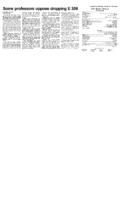
Ewing, Darryl. "Some Professors Oppose Dropping E 306." _Daily Texan_ 24 Feb 1986, p. 3.
This article reports that the English Department voted to drop E 306, effective Fall 1988 (offering only Summer classes), and Dean King approved the proposal. Some information about the new E 309K courses is included. Maxine Hairston, John Ruszkiewicz, Joseph Kruppa, and Alan Gribben are quoted.
-
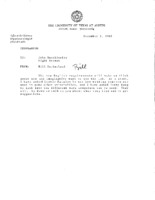
Memo in which Sutherland addresses curriculum changes and development of a writing lab.
-
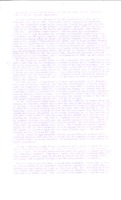
This memo addresses Sledd's position on conflicts about E 346K and first-year writing at UT.
-
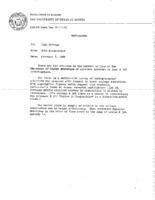
Hugh Strange sends Ruszkiewicz two Chronicle of HIgher Ed articles, one about national attitudes towards college ed with focus on required courses, another about how college composition can be taught effectively by Professor Fulwiler.
-
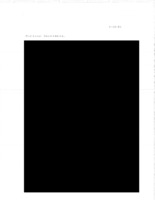
The letter reports a difference of opinion between its author and the Writing Lab staff, which may result in moving the computers out of the Lab. Tutors aren't recommending or using the programs written by the Writing Lab staff.
-
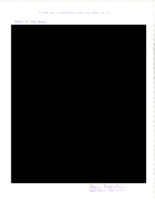
Assistant Professor Mary Robertson writes to graduate instructor Bob Wren, saying he and others fail to see the civic responsibility and civic action served by teaching literature and culture in E 306. Robertson also comments that papers in E 306 fail to push students towards “humanistic civic awareness.” Robertson argues that technically minded students need humanistic, civic education, whether they realize it or not.
-
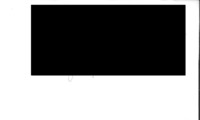
A prefatory handwritten note asks for feedback on an attached letter to Gerhard Fonken. The letter says that the needs and interests of the students are not served by recent changes to the writing program. The letter argues that the new program will adversely affect the university's reputation, the Writing Center, and the graduate program in rhetoric. The letter defends the E 306 curriculum, saying it was never a remedial course. Finally the letter argues that E 309K will suit the needs of English literature faculty by letting “non-specialists” who know nothing about the research on writing instruction teach lower-division writing.
-
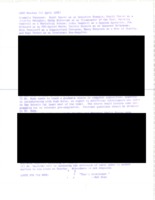
Minutes of the AGSE. Listed as present are Deaver, Fowler, McDonough, Gambrell, Campbell, McDonald, Balester, Penticoff, Peterson, and Parker. Among other topics discussed are: The status of graduate students on the FEPC and Bump’s plan to teach a computer-assisted composition course with Burns.
-
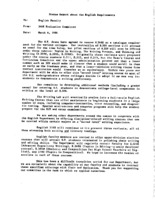
This report from the E 346K committee explains that E 346K has been removed from the course catalogue and that E 309 will be offered under three headings: Topics in Writing, Writing Process, and Thinking and Writing (309K, 309L, and 309M). Students can enroll in 309 in their first year. Plans for additional writing classes, the Writing Lab, and for E 316, E 325M, E 360M, and E 379C are mentioned in the report. Finally, the report says that other departments have been asked to develop discipline-specific writing classes.
-

The minutes of a meeting of the AGSE. In attendance: Reber, McDonaugh, Halasek, Van Vocht, Campbell, McDonald, Wren, Paterson, and Fowler. Among other topics, the committee discussed selecting an outstanding teacher for recognition, and announced that Bertelson will be new director of "Freshman Composition."
-
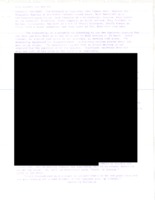
Minutes of the AGSE. Present are MacDonald, Balester, Penticoff, Fracasso, Campbell, Fracasso, Billingsley, Wren, and Fowler. Among the topics discussed are: getting a computer for Fred Kemp that will be used to produce a bibliography project; changes to the FEPC and Bertelson’s appointment as Director of Freshman English; and the University Council’s decisions regarding E 346K.
-
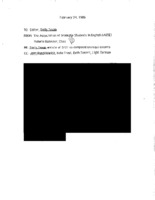
Referencing a 21 February 1986 article that discusses new English requirements, Valerie Balester, the AGSE Chair, says the courses described in the article are not familiar to those in the first-year writing office (Ruszkiewicz, Frost, Daniell, and Light German cc-ed).
-
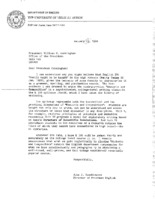
Ruszkiewicz addresses William Cunningham’s comment that E306 ought to be taught in high schools, saying E306 is a sophisticated course, not a rudimentary class in grammar and punctuation. Ruszkiewicz details aspects of the course, such as Unit 9, which teaches exploratory writing with Kuhn’s “Structure of Scientific Revolutions.”
-

At this meeting, the E 346K proposal is discussed. Kruppa, Sutherland, and Fonken defend the proposal, while Kinneavy argues that it's an attempt to shirk composition instruction. Other faculty from other departments weigh in. There is no motion as the decision is left up to the English Department.
-
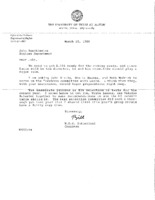
Sutherland, Chair of English, reports to Ruszkiewicz that Bertelson will be the next Director of Freshman English, and Slatin, Kearns and Hedrick will be added to the FEPC to help in the transition and preparation of E 306 for the coming year. Sutherland also identifies the next issues that this committee must address.
-
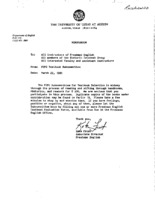
Addresses E 306 textbook adoptions and process for selection of texts.
-
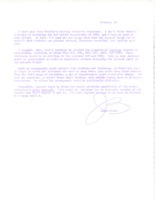
James Sledd suggests that a new suite of elective lower-division courses be re-instituted, now that E 346K has been waived as a requirement.
-
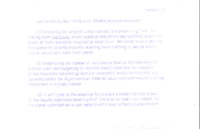
Discusses Sledd's proposal regarding undergrad English requirements.
-
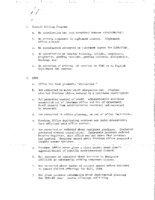
List of complaints relating to relationship between English Department and Writing Program with specific focus on E 306, the writing lab, E 346K, and hiring.
-
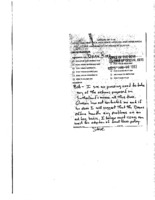
A cover memo to Dean King from "Steve" says there is no need to take any of the actions suggested by William Sutherland.
A memo from Sutherland to Dean King recommends that a range of transfers be allowed for lower-division courses, for E 316K, and for E 346K.
-

A handwritten memo that describes talking points from meeting with John Weinstock about departmental and university politics related to writing program. Specifically mentions James Kinneavy and Robert King.
-

The waiver of the E 346K requirement is discussed at this meeting. Sledd makes two motions: (1) the faculty maintain continuity of writing instruction while E 346K is suspended; (2) a formal committee be appointed to investigate recent changes to the writing program.
Kinneavy is given the floor and hands out a 4-page document titled “The Decomposition of English” which argues that the English Dept. is systematically dismantling the writing program. Other English faculty--Sultherland, Gribben, and Carver--defend against Sledd's and Kinneavy's claims.
-
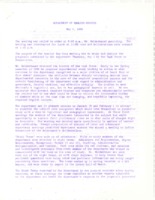
At this day-long meeting, the English Department faculty discussed a preliminary version of the Task Force on Composition proposal, subsequently revised and submitted for departmental vote by mail ballot.
-
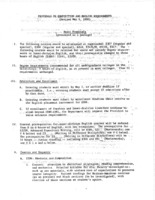
A 12-page version of the proposals to revise the English composition curriculum, requiring E 306, E 316, and establishing a new course (E 346K).
-
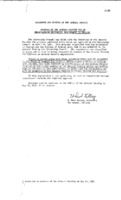
This amended proposal for changes to the undergraduate requirement in English features two major differences from the original February proposal: (1) The University Council, not the English Department, has authority to determine which classes can count for E 346K equivalency; (2) The Writing in Business variant of E 346K has been dropped.
























